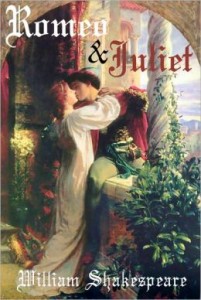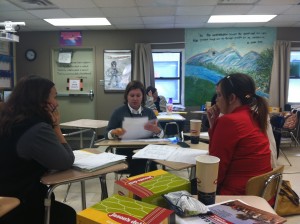Adults with children attending school in countries with developed economies are hearing a common theme these days . . . “We need to focus on developing global citizens with 21st century skills.” But interview teachers (which we often do as creators of The Global Class and Any1Can Project), and you hear the practical challenges at hand. There are high expectations of (and pressure on) today’s educators to effectively teach to established curricula and help students improve scores on standardized exams. So, how and where can they integrate global education in ways that align with what they’re already teaching and are presented in new, innovative and engaging ways that appeal to students – especially teenagers in high schools?
As one contribution to the answer, we offer up Exhibit A – the 9th grade English teachers and administrators of Myers Park High School in Charlotte, North Carolina, USA. This year, with the support and encouragement of a new principal, Mark Bosco, interested in expanded global knowledge and problem-solving skills, these teachers launched a year-long program that culminates in April.
Step 1: They participated in professional development on how to incorporate seven global issues into the classroom.
Step 2: They introduced the history and context of South Sudan and the f ormer Lost Boys of Sudan into their classrooms through articles, videos, an assembly, and dialogues.
ormer Lost Boys of Sudan into their classrooms through articles, videos, an assembly, and dialogues.
Step 3: They connected classroom learning to efforts of a student club that took the lead on sharing with the rest of the school what was going on in 9th grade English.
Step 4: Working in an integrated way, the 9th grade English teachers and student club members planned a 3-mile “Walk for Wisdom” to raise funds for adult literacy in South Sudan. The walk takes place on Friday, April 4, with nearly 700 of the high school’s 3,000 students registered.
Step 5: After the walk, in April, the teachers are leading classroom reflection conversations a bout the relationship between what students learned about South Sudan and themes of education, conflict and intolerance in classic literature, specifically Romeo and Juliet and The Odyssey.
bout the relationship between what students learned about South Sudan and themes of education, conflict and intolerance in classic literature, specifically Romeo and Juliet and The Odyssey.
Step 6: All of the 900 English students in 9th grade are learning to use online technology to create “memes” that juxtapose images from South Sudan with famous lines from “R&J” and “Odyssey.”
And there’s a culmination. By May, these memes will be curated for presentation at the school and in public.
Next time you hear someone say, “What are teachers doing to prepare students for the world of tomorrow?” feel free to think about this moment in time that links a photo of a few teachers sitting in a circle of student desks and what emerged from it. 
